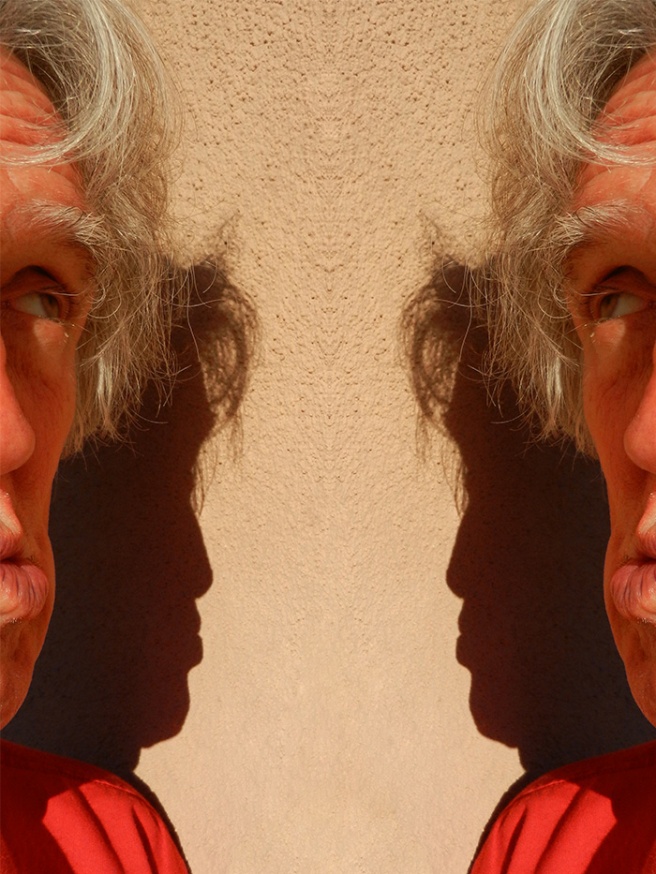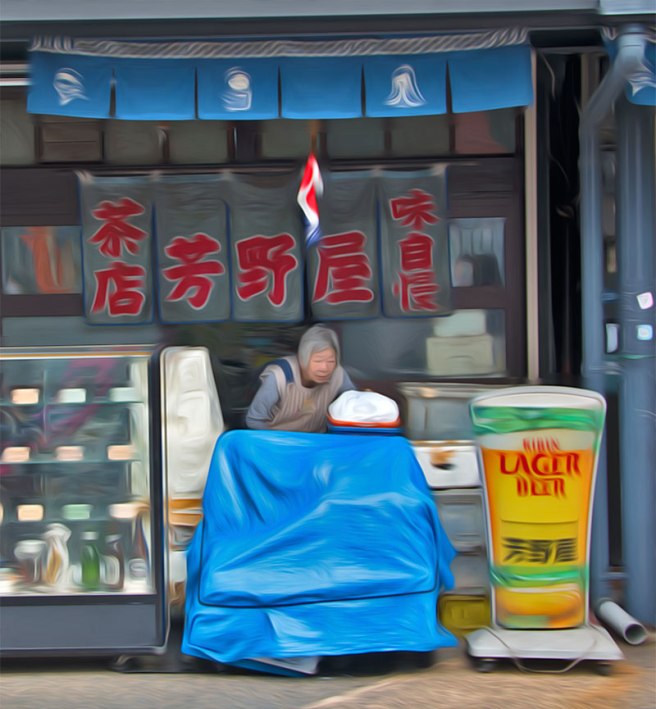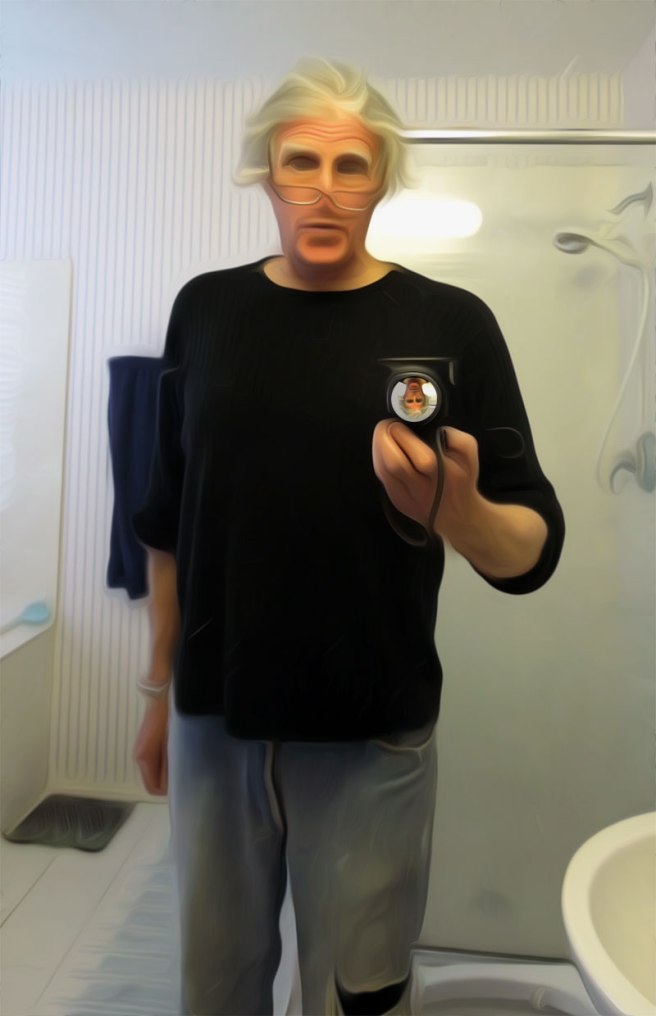I seems I’m always searching for something, never finding it . . .

or did I just not know when I found it that I had found it . . .

Or maybe when I found it, it was not what I wanted, it did not want me . . . or “I changed” my objective? Or I was just flat-out rejected.

Whatever may be the difference, searching for something that was not real, or not really there, or not able to know when I found it or beyond my reach . . . pretty much all the same thing.

Guess that is a good argument for Virtual Reality—you know its not real, you do not care its not real, but it really feels good.

Got to get up, in the morning put on my forgetful face and focus on the yoga of my responsibility and the zen of my obligations. I feel them like they were only yesterday.

Would you rather be standing or working —which pays more, which is more fulfilling? Four of seven working while the machine is idle.

Him & She, who weighs in the gain or loses in their own weigh.

Finding the right one or choosing the right one—so much to right one from.

What does it mean to be a person? . . a human being, . . . a homo sapien? For what reason in this universe of gazilions of atoms did these few come together to make this me? Or this, you too!
“ . . . a typical human of 70 kg, there are almost 7*1027 atoms (that’s a 7 followed by 27 zeros!) Another way of saying this is “seven billion billion billion.” Of this, almost 2/3 is hydrogen, 1/4 is oxygen, and about 1/10 is carbon. These three atoms add up to 99% of the total!”
from a Google search referencing— https://education.jlab.org/qa/mathatom_04.html
If a human is seven billion billion billion atoms, how many atoms in the universe? Is it constantly only that number? And what unit of measurement for time is being used? One second, one day, one half life, or is it determined by a digital auto adjustment in the camera?
The law of the Conservation of Mass: the total amount of mass and energy in the universe is constant. (Don’t forget, the universe is expanding?).

What motivates people to come together at a certain place in time? The details of the moment are maybe not so important, still unique, but then how long is a moment?, Do moments have different lengths of time? Words are just too abstract and photographs are just too precise.

Yakusuni Jinja—Temples and shrines are ubiquitous in Tokyo and people in the neighborhood walk though daily; locals or relatives may visit the them; tourists may visit the them kids may play on their grounds; people who do business come and go; and often going through the temple or shrine grounds is a shortcut, at least to the other side.

Shrines and temples are part of the daily life experience of Japanese which integrates what it means to be Japanese. All of these things meld together—lines, shapes, colors, textures and design—to create an experience of being Japanese.

In the US the “church” is more about creating a division between people and their god, people are bad and god is good. Its architecture feels authoritarian and not conducive to daily interaction with people —its weird that the main piece of Art is a dead body hanging on a cross. Often the more “beautiful” the church the more often the doors are locked to protect the property from burglars, vandals and thieves.
Early in the morning dog owners meet at the temple.

Last weekend I learned that Gary Holt, a Berkeley potter had passed away. I have been using his pottery, generally on a daily basis, for at least 30 years. He was a skilled potter and had his own style? if style is the right word—everything he did had a common feel to it distinct from other potters.
I would see his work in stores in Berkeley and I instantly knew he created it, there always seemed to be a consistent expression of him.

Salt soluble teabowl by Gary Holt. This was one of his first ones, it reminded me of work by Miro. These were not opaque, some light would come through and the color of matcha was beautifully enhanced.

From a series of posters about US potters . . .

I may seem to complex, or too complex . . .
A thought of folly,— and one is an ordinary man; a thought of enlightenment ,—and one is a Buddha. Sixth Patriarch, Blyth translation

or too simple to bother about. I like the films of Ozu and enjoy Tora-San.

My wife says Ozu is too slow and Tora-San is too stupid. When I watch Ozu I have to divide my time between reading subtitles and experiencing the visual—so too slow is just my speed. As for Tora, maybe you needed to be there.

